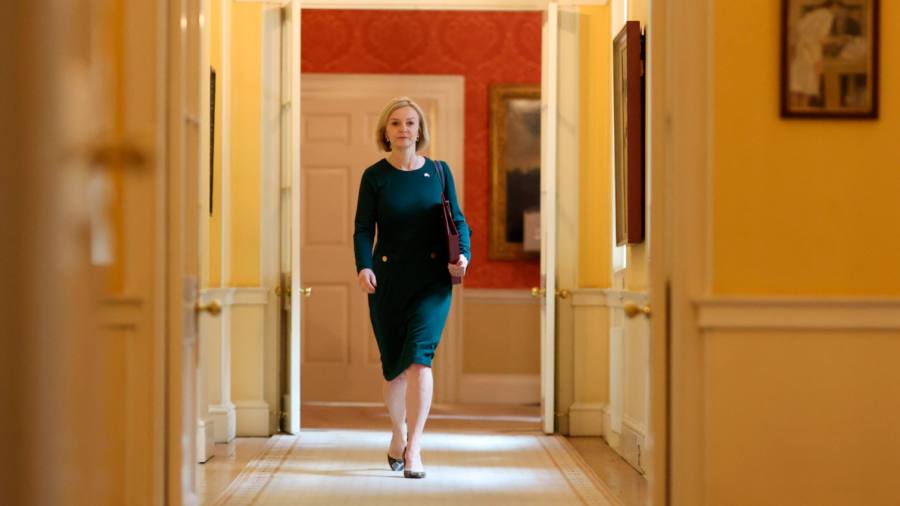
Liz Truss has given her strongest indication that she will scrap the cap on bankers’ bonuses, saying she was prepared to take on “vested interests” in her pursuit of higher economic growth.
The UK prime minister said on Tuesday that she and her chancellor, Kwasi Kwarteng, were prepared to make the argument for controversial policies because “this is about growing the size of the pie”.
Kwarteng will on Friday deliver a mini-Budget centred on tax cuts and with a focus on policies that he claims will nudge Britain’s growth rate up to its pre-financial crash level of 2.5 per cent a year.
Truss declined to discuss the plan to end the EU cap on bankers bonuses — which are limited to twice annual salary — but her allies confirmed a Financial Times report last week that an announcement is imminent.
Speaking en route to New York, where she will address the UN General Assembly on Wednesday, Truss said: “Not every measure will be popular and there are always people who oppose measures that increase economic growth.
“But what is important to me, what is important to the chancellor, is that people have more opportunities, there is more investment and there are jobs with higher wages. We are prepared to make that argument.”
Labour strategists can barely believe that the new government is considering lifting curbs on bankers’ pay as one of its first economic acts. But they are conscious that Truss will seek to label the opposition party as “anti-growth”.
Kwarteng’s fiscal statement is also expected to reverse a plan by former chancellor Rishi Sunak to increase corporation tax from 19 per cent to 25 per cent next April.
It is also expected to deliver Truss’s promise during the Conservative leadership contest to cut national insurance, which will give much bigger savings to the rich than to those on modest incomes.
But Truss is determined to push through the policy. “Lower taxes lead to economic growth — there’s no doubt in my mind about that,” she said.
“Having the highest taxes in 70 years and putting up corporation tax at a time when we’re trying to attract investment to this country isn’t going to deliver growth. We need to be competitive.”
Kwarteng will also on Friday give more details of how the government’s plan to limit average yearly household energy bills to £2,500 will be funded. Jacob Rees-Mogg, the business secretary, is expected to give more details of a similar scheme for companies on Wednesday.
Truss said that, although the government would shield people and business from soaring energy prices, the west had to confront hard choices because “we cannot jeopardise our security for the sake of cheap energy”.
Speaking to journalists ahead of her first overseas trip as prime minister, Truss added: “The western world has become too dependent on authoritarian regimes, not just for our energy supplies but also for other critical minerals and other goods.”
She said that breaking Britain’s dependence on authoritarian regimes was “a price worth paying because our long-term security is paramount”.
Truss claimed the government’s decision to limit bills would cut headline inflation by up to 5 percentage points, adding: “Of course economic growth will be higher than it would have been if we hadn’t acted because it would have had a debilitating effect on the economy.”
Truss has been forced to put politics on hold during 10 days of national mourning following the death of Queen Elizabeth.
She praised civil servants, the royal household and the armed forces for overseeing the widely praised ceremonial events marking “this very important moment in our nation’s history”.